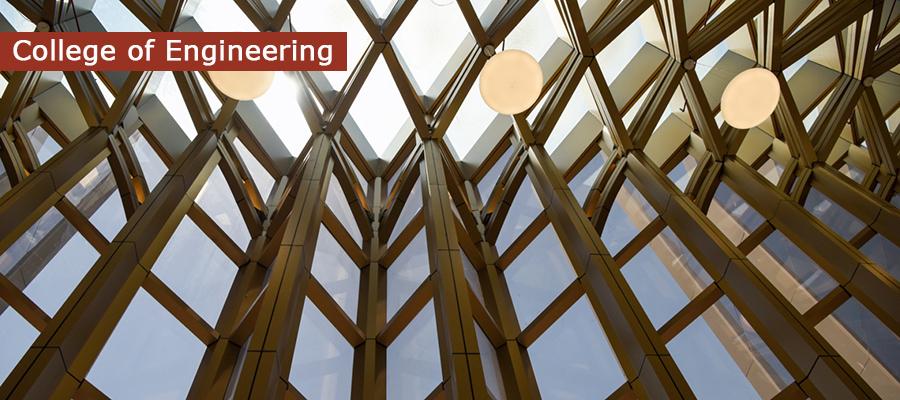- About
- Admissions
- Study at AUS
- Prospective Students
- Bachelor's Degrees
- Master's Degrees
- Doctoral Degrees
- Admission Publications
- International Students
- Contact Admissions
- Grants and Scholarships
- Sponsorship Liaison Services
- Testing Center
- New Student Guide
- File Completion
- New Student Orientation
- Payment Guide
- Executive Education
- Students with Disabilities
- Academics
- Life at AUS
- Research
- Contact Us
- Apply Now
- .

Towards a Net-Zero Water-Energy Nexus Systems (September 2023)
This lecture addresses the critical interplay between water and energy systems, referred to as the Water-Energy Nexus (WEN) to increase the overall efficiency and achieve net zero emissions. While existing solutions have explored various aspects of the WEN, there remains a need for more sophisticated and practical approaches for implementation. Specifically, the distinctive water scarcity challenges faced by the gulf region necessitate customized solutions, with a focus on the process of water desalination. Previous efforts have often focused on singular aspects, neglecting a comprehensive integration of multiple facets essential for a holistic solution.
By merging the concepts of smart grids and intelligent water networks, the proposed WEN introduces a cohesive and advanced approach. A key driver for this integration is the UAE Energy Strategy 2050, which strives to achieve a substantial 50 percent clean energy contribution, mainly sourced from renewable outlets. However, this transition presents many challenges, particularly for water desalination. The high dependence on gas-fired thermal power plants for desalination processes raises concerns about future sustainability.
The central focus of the research revolves around an exploration of diverse technologies that facilitate the synergy between water and electricity sectors within the WEN. Thus, at its core, this research seeks to harness the potential of renewable energy resources to realize a net-zero objective within WEN systems.
About the speaker
Dr. Mohmed Hamouda is Associate Professor of Water and Environmental Engineering at United Arab Emirates University. He is also the coordinator of the Water Resources Graduate Programs at the university. He conducts research and teaches courses in the areas of water and wastewater treatment, hydraulics of water supply and stormwater control, surface and subsurface hydrology, and urban water resources management and decision making. He runs the virtual Integrated Water Cycle Research Lab (IWCRL), which focuses on research at the intersection between the water cycle and the anthroposphere. Research at IWCRL stems from the need to use advancements in data analysis, modelling and simulation, and analytical methods to investigate and develop sustainable solutions for water and environmental issues. He also holds affiliation with the National Water and Energy Centre at UAE University that enabled him to work on several applied research and consultancy projects. Dr. Hamouda was able to attract funding for more than 10 research projects in the past six years with total funding of around USD 1.5 million. He has published more than 50 peer-reviewed Scopus-indexed papers and has won several academic awards for active academic publishing in top tier journals. He has also (co-)authored more than 30 presentations at national and international conferences and has delivered several invited talks. Dr. Hamouda was the recipient of four best-presented paper awards at international and regional conferences. Dr. Hamouda has experience in training HQP. He continues to supervise and mentor more than 15 graduate students and post-doctoral fellows in the last six years. He is a member of Professional Engineers Ontario, Canada; The International Water Association, UK; The American Water Works Association; The Egyptian Syndicate of Engineers, Egypt; and the European Geosciences Union, Germany.
Dr. Hamouda received his Bachelor of Science in Civil Engineering, Master of Engineering in Construction Management, and Master of Science in African Water Resources Studies from Cairo University, Egypt, in 2001, 2002 and 2006, respectively. He then obtained his PhD in Civil and Environmental Engineering from University of Waterloo, Ontario, Canada, in 2011. In 2011, he joined the NSERC Chair in Water Treatment, University of Waterloo, as a post-doctoral fellow and an instructor.
For more information, contact [email protected].

